Aberdeen City Council appears stuck between a rock and a hard place on the bus gates – scared of being faced with an £8 million bill or the prospect of another day in court.
Even public spending watchdog Audit Scotland has been dragged into the row over the bus priority measures around Market Street, Guild Street and Bridge Street.
But there’s a new, emerging, threat that desperate city centre traders and business bosses could take their complaints into the legal arena.
A Court of Session decision on pedestrian-friendly plans for Academy Street in Inverness has given Granite City businesses cause for thought.
In August, Highland Council was found not to have properly consulted before ploughing on with plans to close the road to through traffic.
Owners of the Eastgate shopping centre won a judicial review after councillors had voted through a proposal the public had never been consulted on.
Aberdeen City Council no stranger to court challenges
It’s a ruling that Aberdeen City Council’s legal team will be soaking in.
Beetroot-faced city officials last year blinked first in the row over the closure of Bucksburn pool and six city libraries, brought about by £47m budget cuts.
To avoid the fight spilling into a full-on courtroom drama, council chiefs agreed to finally consult the public, albeit months after doors had been closed.
All this before plotting out a new look for Aberdeen city centre, without prior consultation or – as The P&J revealed in July – in-depth forecasting of how measures might hit the pockets of city centre traders.
The use of the experimental traffic regulation order (Etro) to introduce the £285,000 bus priority measures in Aberdeen has caused the fury.
The unusual roads order is seen as a way of making changes and only consulting the public and affected businesses after the fact.
And months of campaigning, the only change seemingly proposed by the SNP and Lib Dems running the council is allowing right turns out of Union Terrace onto Rosemount Viaduct again.
Could Transport Scotland call in South College Street chit?
Even that small change – the only of the six requests from city centre traders backed by nearly 12,000 over the summer – is more than council top brass had wanted.
Chief planner David Dunne penned a report urging all Etro measures be made permanent for fear of “confusing and frustrating drivers” at the chopping and changing.
The briefing also included a short summary of how local authority lawyers were thinking, amid rumblings of – yet another – court challenge.
A recap confirmed Aberdeen City Council had made the Etro in August 2023, in line with the Road Traffic Regulation Act.
The council has until March 1 2025 to decide whether to make any of the bus gates and other measures permanent or to lift them.
And Mr Dunne states he, the council’s finance chief Jonathan Belford, and even the public spending watchdog Audit Scotland are worried the cash-strapped council might be slapped with a multi-million-pound bill.
That’s because the bus gates around the central stretch of Union Street are really the only bus-friendly part of Aberdeen’s successful bid for £10m from the Scottish Government’s Bus Partnership Fund.
Mr Dunne previously suggested other councils looked on jealously as the South College Street works were funded by the grant – even though the junction improvements, so far costing £8m, offered no gain to bus services.
In the letter promising the cash, Transport Scotland reserved the right for government ministers to “re-assess, vary, make a deduction from, withhold, or require immediate repayment” should the council stray too far from what was agreed.
Why is Audit Scotland concerned about the Aberdeen bus gates?
And money man Mr Belford fears, as the Scottish Government cuts £500m to balance the books, a “heightened level of scrutiny and consideration might be given to any changes made”.
External auditors, Audit Scotland, also believes there is a risk the Scottish Government could seek to claw back some of the South College Street cash if the bus gates were removed.
Previously roads quango Transport Scotland would not be drawn on the matter.
A spokeswoman would only tell The P&J: “Funding would be a matter for discussion between the council and Transport Scotland.”
It would leave an £8m question mark on the hard-up council’s balance sheet as bosses look to scrimp tens of million in coming years.
But earlier this week Aberdeen Labour group leader M Tauqeer Malik said there was “absolutely zero chance” Holyrood would ever ask for the money back.
What does council make of the Inverness Academy Street case?
Meanwhile, Lord Sandison’s ruling against Highland Council on Academy Street is not of much concern to Aberdeen City Council, it seems.
The judge was convinced the Inverness high street consultation was “unfair to and beyond the point of unlawfulness” as the eventual layout was not included for views.
But Aberdeen city planning chief Mr Dunne said that case “differs significantly” from the bus priority measures.
“The Etro involved a period of consultation and monitoring, allowing the public and decision-makers to observe the impacts before deciding on its permanence,” he wrote in a report for councillors.
“The Etro underwent statutory consultation, with comments and objections from individuals and businesses considered by officers and presented to [councillors] as part of the decision-making process.”
But he noted that, should the bus priority measures be scrapped or changed, the local authority would consider how to ensure the consultation was “procedurally fair” in light of the Highland Council ruling.
Council’s top solicitor stingy with the wealth of legal knowledge
However, the council’s interim chief governance officer Alan Thomson infuriated councillors earlier this week, as he fought to withhold key legal advice on the likelihood of the Scottish Government cashing in their chit.
Mr Thomson, the authority’s most senior solicitor, argued that sharing the legal opinion from the council’s external law firm could disadvantage the city if the bus gate fight does end up in court.
Before eventually agreeing to let some select councillors view the document, he had explained: “Legal privilege can be lost if [we] share it widely.
“It’s harder to argue a printed document with legal advice is still legally privileged.
“So it increases the risk that a court would order the council to share it.”
It comes after campaigners and their legal team used the local authority’s lacking consultation and impact assessment to tear apart the case for the closures of the libraries and Bucksburn pool last year.
And Mr Thomson’s cagey reluctance, bordering on resistance, to share the legal opinion with elected councillors appears a result of lessons learned from that defeat.
“He’s fed up of [library campaign solicitor advocate] Mike Dailly mostly,” one council insider speculated.
Read more:
Union Terrace right turn ban could be axed – but final Aberdeen bus gate decision delayed
A timeline of every step of Aberdeen’s bus gate chaos since 2020
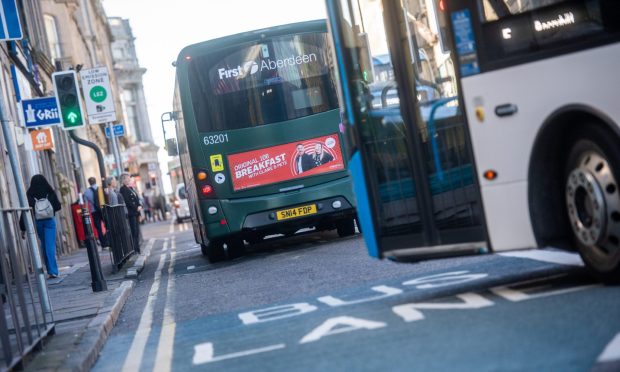
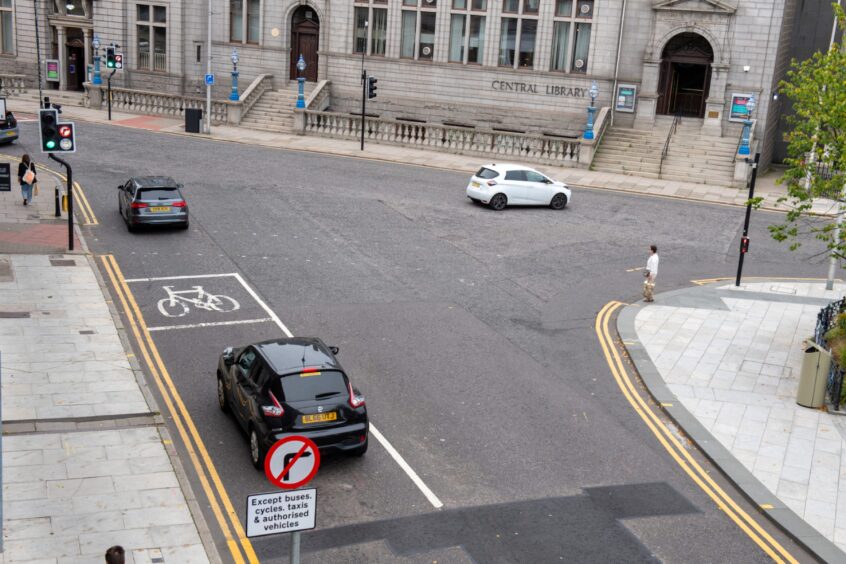
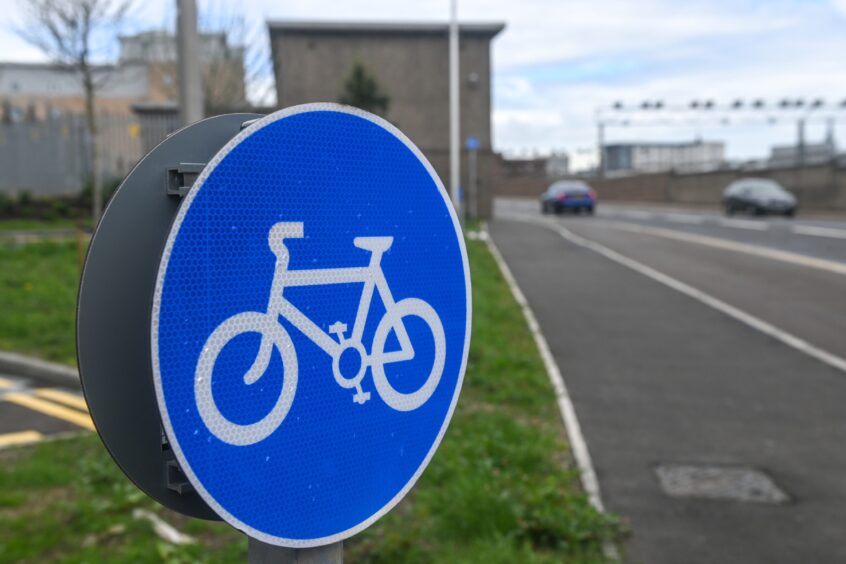

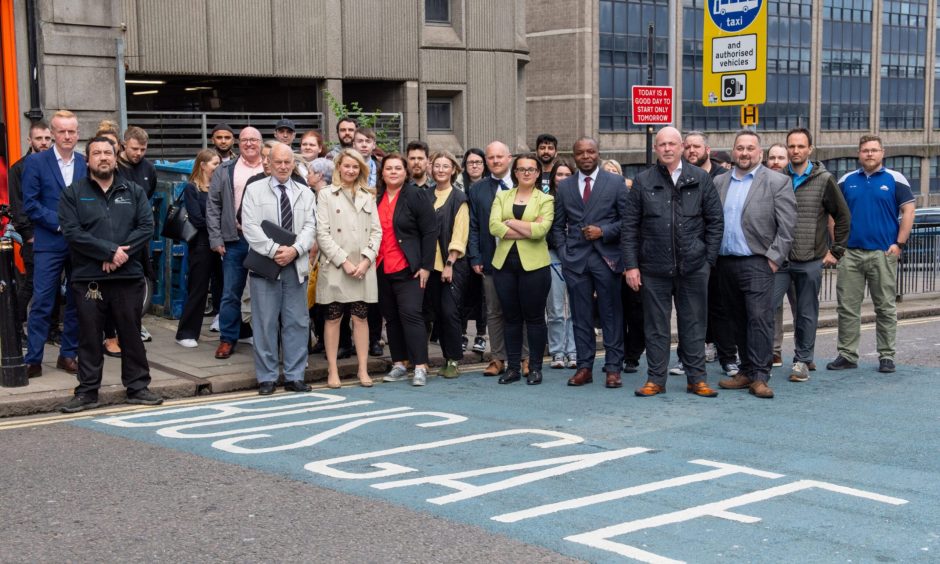
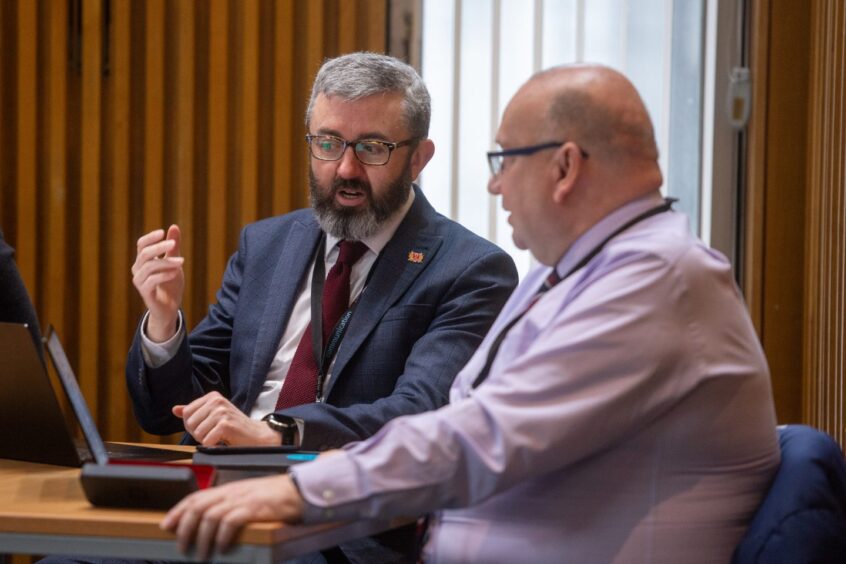
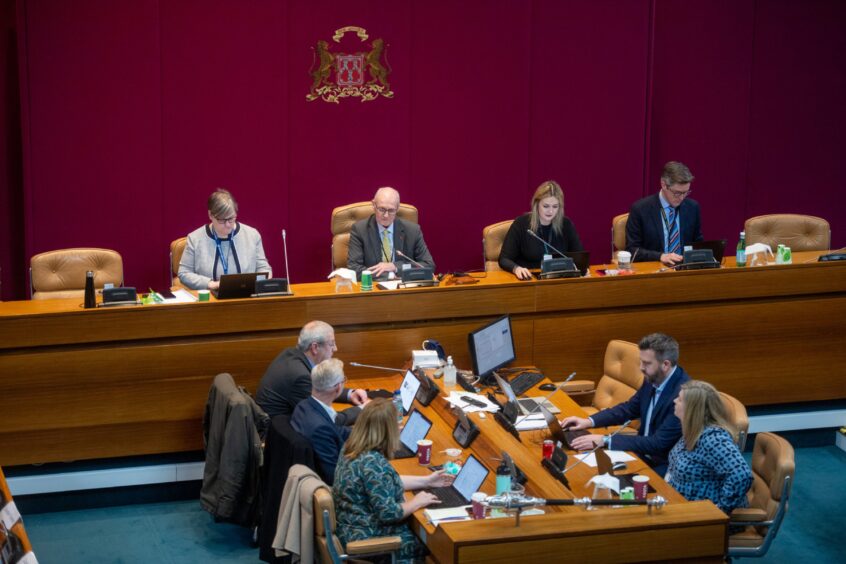
Conversation